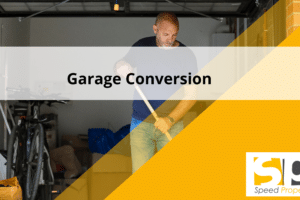Selling Inherited Property in the UK: [Updated April 2025]
Selling Inherited Property UK:[updated April 2025]
When a loved one passes away, the process of settling their estate can be a difficult and emotional experience. In addition to coping with the loss of a family member, there are a number of legal and financial matters that need to be addressed, including the sale of any property they may have owned.
If you have inherited property in the UK, it’s important to understand the probate process and how it relates to the sale of that inherited property selling it. Probate is the legal process of administering a deceased person’s estate, including identifying and valuing their assets, paying any outstanding debts or taxes, and distributing their property to the rightful heirs. During the probate process, the executor of the estate will typically be responsible for selling any inherited property. This can be a complex and time-consuming process, and it’s important to have a good understanding of the process and your options as you navigate this challenging time.
One of the most important things you can do when selling an inherited property in the UK is to find the right buyer. Whether you choose to work with a traditional estate agent or a quick house sale company, selecting the right buyer can help ensure a smooth and successful sale that meets your needs and helps you move forward with your life. In this guide, we’ll take a closer look at the probate process and provide tips and advice on how to find the right buyer for your inherited property.



Understanding the Probate Process
In the UK, probate is a legal process that must be completed before selling an inherited property. Understanding of how it works is necessary for a quick sale.
Probate is the process of settling the affairs of a deceased person, including their debts and assets. When someone dies, their estate (including any property they own) typically passes to their beneficiaries or heirs according to their will or the rules of intestacy if they didn’t leave a will. However, before this can happen, the executor of the deceased’s estate, (or administrator if there is no will) must apply for a grant of probate.
The grant of probate is a legal document that confirms the executor’s authority to deal with the deceased person’s assets, including their property and bank accounts. To obtain this document, the executor must first identify all the assets and debts of the estate, then prepare and submit an application for probate to the Probate Registry.
The type of probate needed depends on how complex the estate is. For example, a small estate worth less than £5,000 might only need a simple form of probate called a ‘small estate grant.’ On the other hand, a more complicated estate, especially those with multiple beneficiaries or will disputes, will need a more involved probate process, which might take longer and require more legal help.
It’s essential to work with solicitors and other professionals experienced in handling probate cases. They can assist in tasks such as valuing the property, dealing with any outstanding debts or taxes, and distributing the property to the rightful heirs. By working with professionals who understand the probate process, you can ensure that the sale of your inherited property goes smoothly, and you get the best possible outcome.
Valuing the Inherited Property
One of the first steps in selling an inherited property is determining its value. This is important for several reasons, including assessing any 
Obtaining an accurate valuation of the inherited property is a critical step in both the probate process and when planning to sell. For probate purposes, a professional valuation is required to determine the value of the property at the time of the deceased’s death.
This figure is used by HM Revenue and Customs to calculate any inheritance tax liability. For marketing the property, an estate agent may provide a different market appraisal which reflects current buyer demand and local market trends. If there is a significant discrepancy between the probate valuation and eventual sale price, especially if the sale occurs within a short period, HMRC may investigate to ensure that inheritance tax has been accurately assessed. Engaging a RICS chartered surveyor for the probate valuation can help provide a defensible and reliable figure.
Overall, valuing and selling an inherited house or property can be a complex process, but it’s an essential step in selling the property and ensuring a smooth and successful transaction. By seeking professional advice and taking the time to research the property’s market value, you can set a fair asking price and maximise your chances of a successful sale. You can also use companies that offer free valuation to help get an understanding of what price you might be looking at.
Finding the Right Buyer for Inherited Property
Once you have a good idea of the value of the inherited property, it’s time to start thinking about finding a buyer. There are someoptions available, each with its own advantages and disadvantages.
- Estate Agents
Using an estate agent to sell the property is a common option. Estate agents will typically take care of valuing the property, advertising it, and arranging viewings. They will charge a commission fee based on the final sale price, which is usually between 1% and 3% of the sale price.
- Professional Property Buyers
Property buying companies can be a good option if you want a fast and hassle-free sale. These companies will typically offer to buy the property directly from you, often for slightly below market value. The advantages of this option include a quick sale, no estate agent fees, and no chain. However, you should be aware that you may receive a lower price for the property. Quotes are usually free to it can be worth checking out to see what figure you could be working with compared to other options.
- Private sales
Selling the property privately can be a good option if you have a network of potential buyers or are willing to put in the time and effort to find a buyer yourself. This option allows you to avoid estate agent fees, but you will need to arrange valuations, advertising, and viewings yourself.
- Auctions
Auctions can be a good option if you want to sell the property quickly and are willing to accept a lower price. Auctions can be a good way to generate interest in the property, and the competitive bidding process can often result in a quick sale. However, you should be aware that the sale price may be lower than the market value, and you will need to pay auction fees.
Choosing the right option will depend on your individual circumstances and priorities. Consider things like the speed of sale, convenience, and cost when making your decision.
In addition to choosing the right selling option, it’s also important to present the property effectively to potential buyers. This may include decluttering, making minor repairs and improvements, and staging the property to showcase its best features. A little effort in presentation can go a long way in attracting potential buyers and achieving a successful sale. There are various companies that can help with the removal and disposal of items in the property but it would be at a cost and you should shop around if you are considering this.
When you pay inheritance tax when it comes to selling inherited property in the UK, there are several legal considerations that must be taken into account. Here are some important things to keep in mind:
2025 Thresholds:
As of 2025, the core thresholds for inheritance tax in the United Kingdom remain unchanged. The standard nil rate band continues to be set at £325,000, meaning that any portion of the estate below this value is not subject to inheritance tax. Additionally, the residence nil rate band remains at £175,000, which applies when a main residence is passed to direct descendants such as children or grandchildren. These thresholds are frozen until the year 2030. However, significant changes are on the horizon for other forms of relief. From April 2026, both agricultural and business property relief will be capped at £1 million. This change could have implications for beneficiaries inheriting estates with a combination of residential and qualifying business or farmland assets. It is advisable for heirs to review the composition of the estate and seek legal or tax advice where necessary.
Capital Gains Tax:
When you sell an inherited property, you need to pay Capital Gains Tax on any increase in value since the property was acquired. However, there are ways to avoid or minimize the amount pay capital gains tax is owed. For example, you may be able to claim Private Residence Relief if you lived in the property at any point, or you may be able to deduct certain costs associated with the sale, such solicitor fees such as legal fees and estate agent fees. It’s important to speak with a qualified tax professional to understand your obligations and options.
Inheritance Tax:
Inheritance tax is a tax on the estate of a deceased person, and it may be applicable when you inherit a property. However, if the property is 
Legal Fees:
When selling an inherited property, there are several legal fees and tax owed that may apply. For example, you may need to pay solicitor’s fees, conveyancing fees pay tax due, and probate fees. It’s important to understand these costs upfront and to work with reputable professionals who offer transparent pricing.
Choosing a Reputable Estate Agent:
A reputable estate agent can help you sell your inherited property quickly and for the best possible price. When choosing an estate agent, look for someone with experience selling similar properties in your area. You should also ask for references and read online reviews to ensure that the agent is trustworthy and has a track record of success.
Probate Process:
The probate process is a legal requirement that must be completed before you can sell an inherited property. It’s important to work with solicitors and other professionals who are experienced in handling probate cases to ensure that the process is completed smoothly and efficiently. They can help you with tasks such as valuing the property, dealing with any outstanding debts or taxes, and distributing the property to the rightful heirs.By understanding these legal considerations and working with professionals who are experienced in handling inherited properties and property sales, you can ensure a smooth and successful sale of inherited home.
Selling Inherited Property at Auction / Quick House Buyers
Selling inherited property at auction can be a quick and efficient way to sell the property, especially if you’re looking to complete the sale quickly. However, it’s important to understand the benefits and drawbacks of this approach before making a decision.
Benefits of selling inherited property at auction include:
- Speed: Auctions usually take place within a few weeks of listing the property, and completion can happen within a month of the auction date.
- Transparency: Auctions provide a transparent sales process with set deadlines, which can be reassuring for both buyers and sellers.
- Competition: Auctions can attract a range of potential buyers, which can drive up the sale price.
Drawbacks of selling inherited property at auction include:
- Fees: Auction houses charge fees, which can eat into the final sale price.
- Uncertainty: There’s no guarantee that the property will sell at auction, and the sale price may be lower than expected.
- Preparation: Preparing the property for auction can be time-consuming and costly.
If you decide to sell inherited property at auction, it’s important to prepare the property to maximise its appeal to potential buyers. This includes decluttering, cleaning, and making any necessary repairs. You should also choose an auction house that has experience selling similar properties and a good reputation in the industry.
In addition to auctions, another option to consider is selling your inherited property to a quick house buyer. This is a less common but increasingly popular approach, especially for those who want to sell their property quickly and with minimal hassle. Quick house buyers are companies that specialise in buying properties quickly for cash, often within a matter of days.
The benefits of selling inherited house to a quick house buyer include:
- Speed: Quick house buyers can complete the sale within days, providing a quick and efficient solution.
- Convenience: Quick house buyers usually take care of the paperwork and legalities, making the process stress-free for the seller.
- Certainty: Quick house buyers offer a guaranteed sale, which can be reassuring for those who need to sell quickly.
However, there are some drawbacks to selling to a quick house buyer, including:
- Lower sale price: Quick house buyers typically offer lower sale prices than the open market.
- Lack of transparency: The sale process can be less transparent than the open market, which may be a concern for some sellers.
- Reputation: There are some unscrupulous quick house buyers in the industry, so it’s important to do your research and choose a reputable company.
Ultimately, the decision of whether to sell your inherited property at auction or to a quick house buyer will depend on your individual circumstances and priorities. It’s important to weigh up the pros and cons of each option before making a decision.

In summary, selling an inherited property in the UK can be a complex and emotional process, but with the right approach, it can also be a successful one. Here are some key points property buyers to keep in mind:
- Understanding the probate process is essential for a smooth and successful sale. This includes obtaining a grant of probate, identifying
all the assets and debts of the estate, and working with professionals to handle legal and financial matters.
- Finding the right buyer is crucial for achieving the best possible sale price. This may involve working with an estate agent, exploring auction or quick house buyer options, or marketing the property to potential buyers directly.
- Working with professionals, such as solicitors, surveyors, and estate agents, can help ensure a successful sale. They can provide valuable expertise on legal and financial matters, as well as marketing and negotiating the sale.
It’s important to remember that every situation is unique, and there may be other factors to consider depending on your specific circumstances. However, by focusing on these key areas, you can increase your chances of a successful sale and minimize the stress and uncertainty that often come with selling an inherited property.
In conclusion, if you’re selling an inherited property in the UK, take the time to educate yourself on the probate process, find the right buyer, and work with professionals to ensure a successful sale. By doing so, you can achieve the best possible outcome for you and your family.
To enhance this guide we’ve also put together some helpful links
-
Solicitors:
-
Estate Agents:
-
Property Buying Companies:
-
Probate help:
It’s important to note that these links are for informational purposes only and it’s recommended to do further research and due diligence before working with any specific company or professional.



 all the assets and debts of the estate, and working with professionals to handle legal and financial matters.
all the assets and debts of the estate, and working with professionals to handle legal and financial matters.







